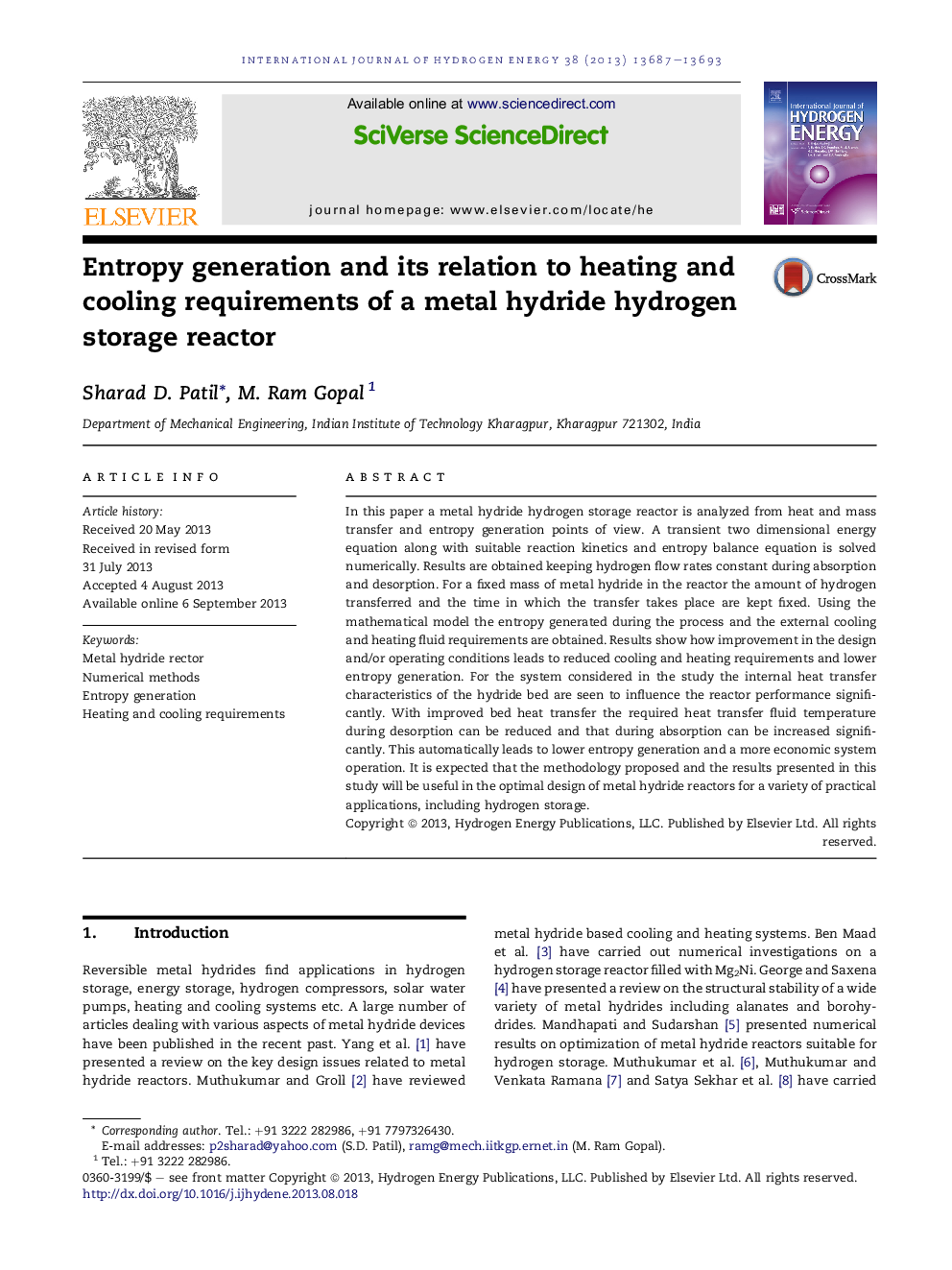| Article ID | Journal | Published Year | Pages | File Type |
|---|---|---|---|---|
| 7721161 | International Journal of Hydrogen Energy | 2013 | 7 Pages |
Abstract
In this paper a metal hydride hydrogen storage reactor is analyzed from heat and mass transfer and entropy generation points of view. A transient two dimensional energy equation along with suitable reaction kinetics and entropy balance equation is solved numerically. Results are obtained keeping hydrogen flow rates constant during absorption and desorption. For a fixed mass of metal hydride in the reactor the amount of hydrogen transferred and the time in which the transfer takes place are kept fixed. Using the mathematical model the entropy generated during the process and the external cooling and heating fluid requirements are obtained. Results show how improvement in the design and/or operating conditions leads to reduced cooling and heating requirements and lower entropy generation. For the system considered in the study the internal heat transfer characteristics of the hydride bed are seen to influence the reactor performance significantly. With improved bed heat transfer the required heat transfer fluid temperature during desorption can be reduced and that during absorption can be increased significantly. This automatically leads to lower entropy generation and a more economic system operation. It is expected that the methodology proposed and the results presented in this study will be useful in the optimal design of metal hydride reactors for a variety of practical applications, including hydrogen storage.
Keywords
Related Topics
Physical Sciences and Engineering
Chemistry
Electrochemistry
Authors
Sharad D. Patil, M. Ram Gopal,
